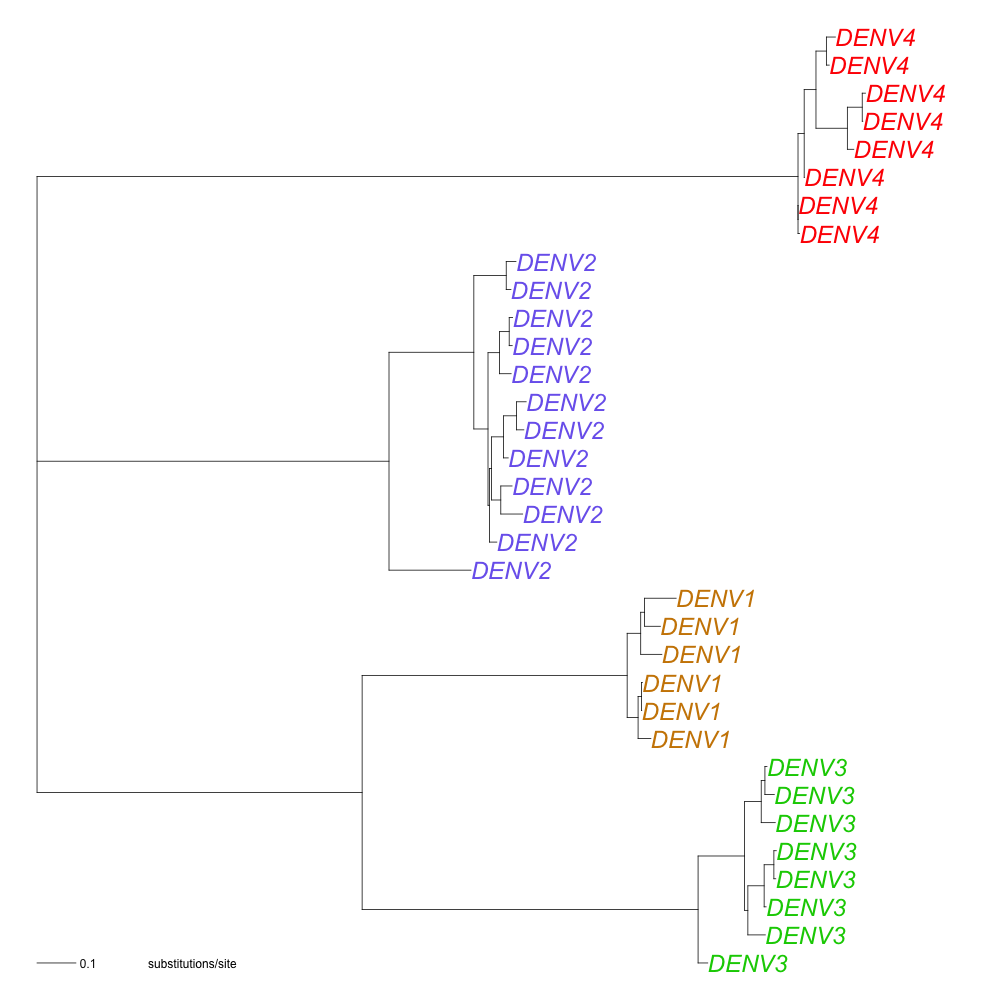 Dengue viruses infect 390 million people each year, and an estimated 4 billion people live in areas where dengue circulates. Dengue viruses are of four distinct genetic types, but are categorised as serotypes: it is believed that each dengue type induces long-lasting protection against viruses of the same type, but a cross-reactive, non-neutralizing response that may enhanced infection by other dengue types. While there is evidence for variation in neutralization within dengue types, as well clinically important patterns in cross-neutralization between dengue virus types, there is not yet a thorough or encompassing description of these antigenic differences.
Dengue viruses infect 390 million people each year, and an estimated 4 billion people live in areas where dengue circulates. Dengue viruses are of four distinct genetic types, but are categorised as serotypes: it is believed that each dengue type induces long-lasting protection against viruses of the same type, but a cross-reactive, non-neutralizing response that may enhanced infection by other dengue types. While there is evidence for variation in neutralization within dengue types, as well clinically important patterns in cross-neutralization between dengue virus types, there is not yet a thorough or encompassing description of these antigenic differences.
The Dengue Antigenic Cartography Consortium is an international collaboration of leading dengue researchers to systematically characterise antigenic variation among a large sample of dengue viruses. Using antigenic cartography, a technique developed to probe the forces underlying the antigenic evolution of influenza viruses, we are testing for antigenic variation among hundreds of dengue viruses by making dengue antigenic maps.
The objectives of the Dengue Antigenic Cartography Consortium are to test:
- how dengue genetic types correspond to observed antigenic types
- if antigenic subtypes exist within the four dengue genetic types
- how quantitatively different antigenic types are, and how this relates to protection
Current Consortium members are donating strains, which we are using to create an antigenic map that reflects the diversity of dengue viruses globally and over time. This project will establish a picture of the antigenic variation among dengue viruses, which we hope will provide a foundation for an antigenic surveillance system similar to the one currently in place to monitor influenza viruses.
If you are interested in joining the Dengue Antigenic Cartography Consortium, or would like more information, please contact Leah Katzelnick, lck33@cam.ac.uk
